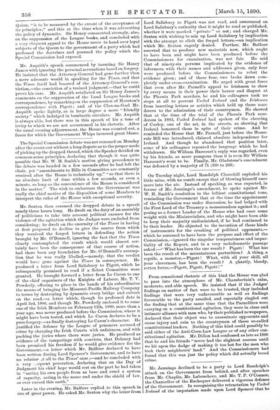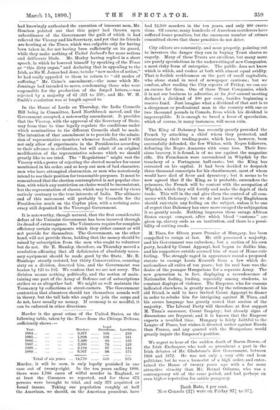Mr. Jennings declined to be a party to Lord Randolph's
attack on the Government from behind, and after speeches from Mr. Chaplin, Mr. Labouchere, and Mr. T. P. O'Connor, the Chancellor of the Exchequer delivered a vigorous defence of the Government. In recognising the retractation by United Ireland of the imputation made upon Lord Spencer that he had knowingly authorised the execution of innocent men, Mr. Goschen pointed out that this paper had thrown upon subordinates of the Government the guilt of which it had relieved the Viceroy and his Secretary, and yet that its friends are howling at the Times, which was culpable only for having been taken in, for not having been sufficiently on its guard, while they make nothing of United Ireland's far more serious and deliberate libels. Mr. Morley having replied in a short speech, in which he lowered himself by speaking of the Times as "this dirty organ," and declaring that in appealing to the Irish, as Sir H. James had done, to take "new modes of action," he had really appealed to them to return to "old modes of suffering." Mr. Caine's amendment,—the same which Mr. Jennings had intended to move, condemning those who were responsible for the production of the forged letters,—was rejected by a majority of 62 (321 to 259), and Mr. W. H. Smith's resolution was at length agreed to.







































 Previous page
Previous page